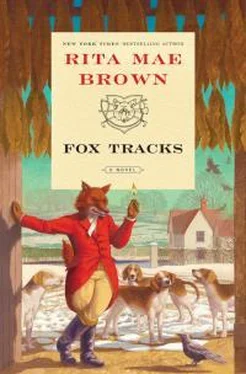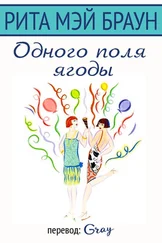“Southside?” he guessed, naming that part of Virginia below the James River, closer to North Carolina.
“No. Pinar del Río in Cuba. This was Adolfo Galdos’ father’s plantation.”
Gray read the copy. “Four generations of tobacco growers. The Galdoses must have been among the first Spaniards to settle Cuba.”
She scrolled down, and more photos of the family appeared. She’d fiddled around doing Internet searches on tobacco shops, then searched for Sophia Galdos, knowing the designer would have a great deal written about her. Sister couldn’t erase Sophia’s charming father Adolfo from her mind. She found photos going back to the beginning of photography. The family members were such a good-looking bunch, and Sophia was a knockout. A former model, she had become a clothing designer, the transition a great rarity in the fashion world.
Gray and Sister read an interview with her, in which Sophia, now in her early forties, explained why she turned to design. Gray read aloud, “I wore so many bad clothes on the runway I knew I could do better.”
Sister laughed. “I like this girl. What a fierce business, though. A designer has to be creative, smart about money, and tough. Not only do you face the press with each season’s showing, you have to deal with all the behind-the-scenes backstabbing.” She studied Sophia’s most recent fashion line. “How about that?” she said, raising her eyebrows at a spare, elegant off-the-shoulder evening gown.
Returning to the old family photos, Sister recognized that Sophia’s cutting-edge designs also had echoes of the spare, gorgeous clothes that her female relations had worn long before air-conditioning.
Gray hunched forward. “So the plantation was nationalized and the Galdoses figured out that eventually they’d be imprisoned. Hmm. But when Adolfo Senior came with little Adolfo and his sister, he didn’t try to break into the tobacco business—or at least not growing it.”
“Well, this is just a shot in the dark, but back in Cuba they grew Criollo tobacco for cigars,” said Sister. “Up here it’s almost all cigarette tobacco. Cigar wrapper tobacco is grown in Connecticut, a little bit in Massachusetts. Who knows, honey, maybe after losing everything, Adolfo’s dad just couldn’t bear to start again in the same business. It doesn’t say here whether or not he was able to smuggle out seed, but if he did, he probably sold it to other Cubans emigrating to Nicaragua or the Dominican Republic. Why does anyone think revolution improves life?”
“It does, if you’re the revolutionary.” Gray half laughed. “Ever notice how they’re all intellectuals or lawyers? They stir up the lower classes, foment bloodshed, come to power, and perhaps the poor have more than before, but they sure as hell don’t have any power.”
She scrolled through more photos, more history, then returned to Sophia’s webpage featuring her latest clothing collection. “I feel so sorry for this woman. To lose your father like that.”
“Every day someone loses someone they love to violence, war, a car accident,” Gray said, voice rising. “But this is uncanny. Somehow this Boston murder is related to Adolfo’s death, don’t you think?”
“It’s certainly strange,” said Sister. “The man who owned the tobacco shop in Boston was also a second-generation Cuban.” She drummed her fingers on the highly polished surface of the mahogany desk. “There has to be a connection.”
“Maybe. But it’s all far away. I don’t think our two tobacco shops in Charlottesville are in danger.”
“Don’t be so sure, Gray. The man who owns the shop in Seminole Square is Cuban.”
“So he is. I forgot about that.” Gray considered that. “Don’t jump to conclusions. I’m sure he’s safe.”
“I hope so,” she said before changing the subject. “You were groaning over there with that puzzle. Why do you do crosswords if they make you so miserable?”
“There’s nothing quite as satisfying as one completely filled out.”
“Sometimes I wonder about you.”
“Ditto.”
They laughed and she leaned in toward him, kissing him on the cheek.
He rubbed his unshaven cheek. “Sorry. A little rough.”
“That’s one of the marvelous things about being a woman. No scraping of the face. However, there are a few other drawbacks.”
“You have no drawbacks.”
“Oh, the honey dripping from those lips.” She smiled at him. “Okay. While you were suffering the tortures of the damned with one down and twenty-three across, I looked up American Smokes. Nothing came up. The company isn’t listed anywhere. There are a few small tobacco companies—one using white burley tobacco, which they claim is mild and has a lower nicotine content—but no American Smokes.”
“Doesn’t make sense,” said Gray. “No cartons in the stores either, I guess, or the media would surely shoot a close-up of the brand, you know, a photo or explanation in the paper.”
“Doesn’t make sense.” She returned to more online reading on the subject of tobacco. “Air-cured or fire-cured can affect nicotine content. I looked that up, too. I sure remember the fire-curing. Hey, did I tell you the fox we put to ground ran into the old curing shed at Kasmir’s property? Still gave off that wonderful fragrance. You know, that smoky sweet smell that makes you want to close your eyes and dream?” She caught her breath. “But back to the subject at hand: nothing about American Smokes.”
“So you’ve been researching tobacco, types, curing, all that? May I ask why?”
“Two murders occurred in tobacco shops, both with Cuban owners, no money was taken. All of this compels me in a strange way. I know this is really crazy but I almost feel I owe it to Adolfo Galdos. He was a true gentleman.”
“Doesn’t sound strange. Events happen in life that galvanize our sense of honor. This is one.”
“Don’t hear that word much anymore: honor.”
He nodded. “When I walked over to take you back to the hotel, after the police released you and Tootie, they didn’t know if anything was missing from the humidor or the safe. Did they ever find out if anything had been taken?”
“The paper said nothing. Same in Boston. I’ll bet the police, the Feds, good old Alcohol, Tobacco and Firearms crawled all over those stories.”
“It will all come out in the wash.”
“I just hope no other bodies come out with it.” She looked out into the darkness. “Our first real winter storm.”
“Want to make a bet on how long the power lasts?”
“No.” She cut off her computer. “Let’s think good thoughts.”
“Right. I stopped by the home place thinking I might see my brother. Thought Sam might have heard something about Crawford bitching about your tangle at the Hunt Ball. Sam wasn’t there, but the place was pin tidy.”
Gray and his brother lived in the Lorillard home place, a lovely large clapboard house maybe four miles from Sister’s place as the crow flies, the Bancroft’s land coming between the two farms. Gray spent more and more time at Sister’s. Neither one mentioned living together. Gray liked getting away, keeping an eye on his brother. He soaked up memories when home. Sister enjoyed her independence, but she was equally happy when Gray stayed with her. Perhaps someday they’d cohabit. Sister was not a needy woman. She liked her own company.
“Don’t you have to go to the bathroom?” the calico cat asked the dogs.
“Why?” Rooster picked up his head.
“Soon it’ll be bedtime. If you go now, you won’t have to go in the middle of the night.” Golliwog feigned concern. “It’s snowing hard. The dog door might be covered over and you won’t get out! If you end up going in the house, you know she’ll have a running fit.”
Читать дальше












